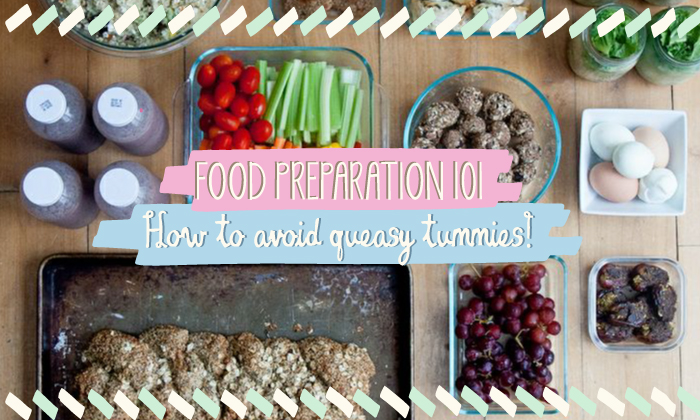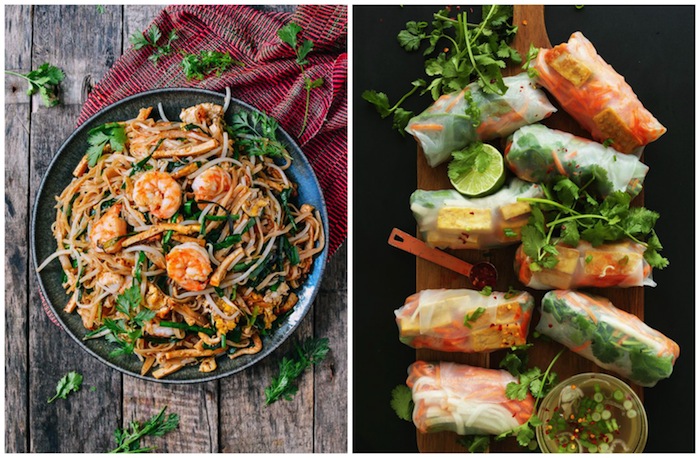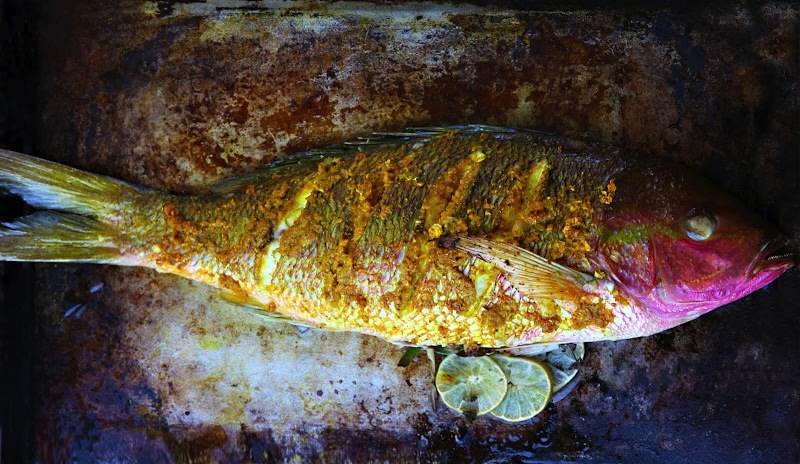




Want to know how to keep your tummy safe while eating adventurously in Southeast Asia? A doctor gives expert advice on safe food preparation.
Whether you’re exploring the street food of this dynamic region, eating your way across Singapore’s hawker centres, or even cooking ingredients you’ve picked up at the local wet market, the region’s tropical climate puts you at major risk of food contamination, mama! Please welcome Dr. Alex Hoyes-Cock from International Medical Clinic (IMC) with tips on how to stay safe whether traveling (because we all know diarrhoea can be a major fun squasher) or cooking at home.
Cook it, peel it, or forget it. That’s the simple rule of thumb when travelling from developed to developing countries, where contamination of food and water is a major problem.
It’s not pleasant to think about, but unfortunately 20 to 70% of holidaymakers will contract traveller’s diarrhoea (TD) when visiting developing countries, usually from ingesting food that has not been prepared correctly.
But be warned: this illness – which is often accompanied by abdominal cramps, fever and vomiting – is not restricted to those who travel. Singapore, being a tropical climate, is a haven for bacteria to harvest silently in your food.
Bacteria cause around 80% of cases of TD, the most common pathogens being Enterotoxigenic Escherichia Coli (ETEC), campylobacter and shigella. A small percentage of diarrhoea is caused by parasitic organisms, such as giardia, but these infections occur mainly in travellers who spend extended periods in developing countries. Viruses are a major cause of diarrhoea in children, but are responsible for only a minority of cases of TD.
Short-lived illness may be due to dietary factors (excessive alcohol intake, chili) or preformed toxins such as ciguatoxin. Ciguatera is a common form of seafood poisoning caused by eating tropical or subtropical marine fish, found near coral reefs (such as barracuda, shark, red snapper and grouper).
These fish accumulate naturally-occurring toxins through their diet. The larger, long-lived, predatory fish are the most toxic to humans because the toxins are concentrated up the marine food chain.
As any doctor will tell you, prevention is better than cure. The following preventative measures will help you reduce the risk of bacteria in your food, and contracting a nasty bug:
- Choose food that is thoroughly cooked and served steaming hot.
- Avoid food cooked early in the day, which then tends to sit at room temperature until served (eg lasagna, quiche, and casseroles).
- Choose well-prepared local dishes with a high turnover, rather than unusual dishes of low turnover.
- Avoid shellfish, prawns and raw meat. Even a well-cooked oyster can transmit enough viruses to cause disease.
- Only eat those fruits and vegetables that you can peel or cut open yourself. Avoid uncooked leafy vegetables, like salads.


- Avoid milk, ice cream, yogurt drinks and other milk products, unless made with pasteurized (or boiled) milk.
- Always wash your hands with soap and water before eating and preparing food.
- For the prevention of ciguatera, avoid eating warm water fish from near shore, especially large coral reef fish, including sharks. Ciguatoxin is not destroyed by cooking, freezing, salting, or gastric acid and there are no antitoxins available for treatment. There is no ciguatoxin in freshwater fish.
- Boiling water is the only completely reliable way to purify water.
Luckily, most episodes of TD are transient and do not require treatment. An oral rehydration solution containing sodium, potassium and glucose should be taken to treat and prevent dehydration. Dairy products, caffeine and alcohol should be avoided, as these may worsen symptoms and cause dehydration. Light carbohydrate-rich foods – like rice, banana, papayas, potatoes and dry biscuits – are tolerated best.
Antibiotics are recommended when the diarrhoea persists for more than two days, and when there is an accompanying fever higher than 38˚C. Particular antibiotics, called quinolones, are the most effective for treating TD.
Probiotics – dietary supplements of living bacteria or yeast – may be taken in conjunction with the antibiotic and have also shown to be effective against TD. They provide health benefits through the intestine. Lastly, in travellers who are at increased risk of severe or complicated diarrhoea, immunoprophylaxis should be considered. The oral vaccination against cholera also has activity against ETEC.
![]()
![]()
Want to know more about how to keep young tummies safe, mama? Visit IMC and their friendly team of international doctors at one of two convenient locations with your questions and problems!
International Medical Clinic (IMC)
Camden Medical Centre, 1 Orchard Boulevard, #14-06, Singapore 248649, Tel: (+65) 6733 4440
293 Holland Road, #02-04 Jelita Shopping Centre, Singapore 278628, Tel: (+65) 6465 4440, www.imc-healthcare.com






 View All
View All





 View All
View All








 View All
View All





